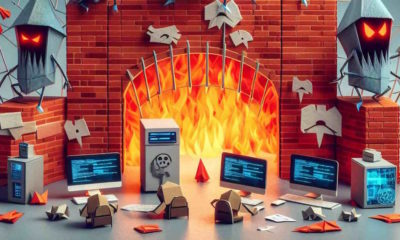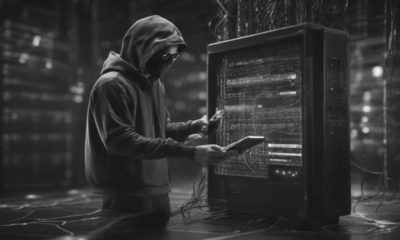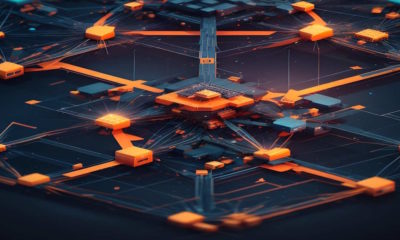Blockchain
How Blockchain Technologies Can Improve Cybersecurity
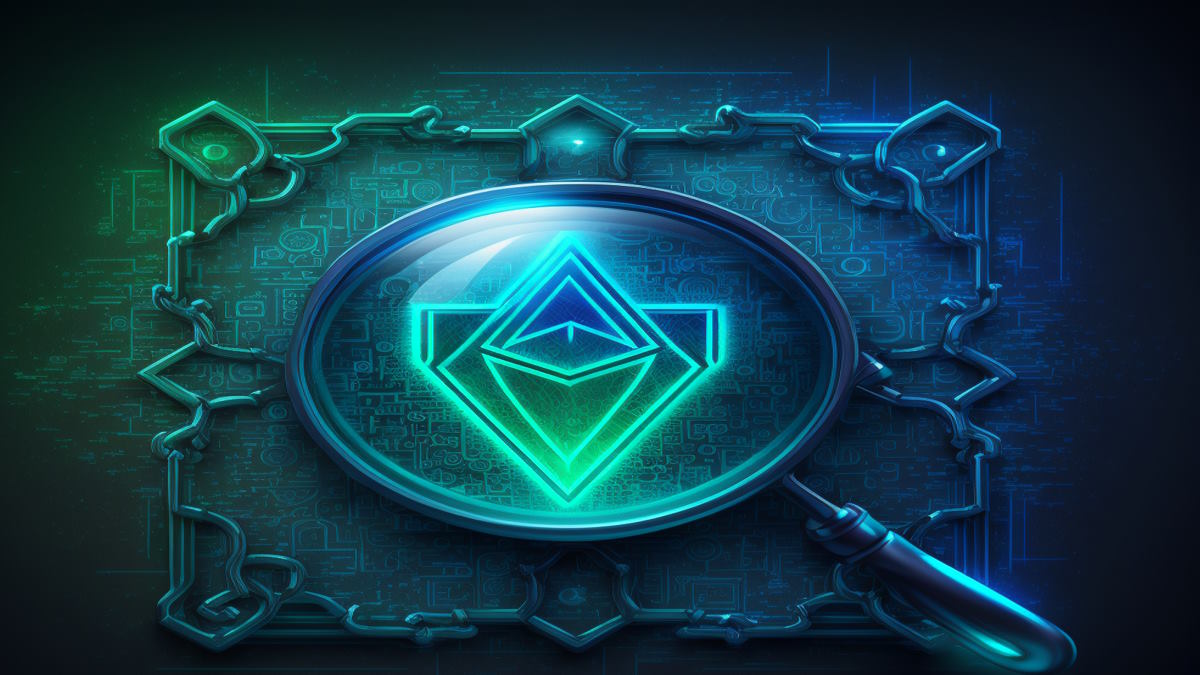
The increasing prevalence of cyber threats has made cybersecurity a critical concern for businesses and organizations across the globe. In this digital age, sensitive data such as medical records, financial information, and confidential business data must be protected against malicious attacks. Fortunately, blockchain technology has emerged as a powerful solution to enhance cybersecurity measures and protect against cyber threats.
Blockchain technology can create a more secure and resilient network by distributing data and processing power across multiple nodes. This makes it harder for attackers to compromise the network because they would need to compromise most of the nodes to make changes to the blockchain. Additionally, the decentralized nature of blockchain can reduce the risk of a single point of failure, a common vulnerability in centralized networks. By creating a distributed ledger of data, blockchain technology provides an additional layer of security that can mitigate the risk of cyber attacks.
One of the key benefits of blockchain technology is its ability to create a tamper-proof record of data. By using cryptographic algorithms to secure transactions and blocks of data, blockchain ensures that sensitive data is only accessible to authorized users and cannot be tampered with. Each block in the blockchain contains a unique cryptographic hash generated based on the contents of the block. Any attempt to modify the contents of a block will result in a new hash value, which will break the chain of hashes that links all the blocks together. This makes it extremely difficult for an attacker to modify data stored in a blockchain without detection.
Furthermore, blockchain’s transparency and audibility can help organizations to identify the source of security incidents and track data flow in the event of a breach. By creating an immutable record of security incidents, organizations can better understand the nature of cyber threats and develop more effective strategies for responding to them. Additionally, blockchain can enable users to authenticate themselves without relying on a third-party identity provider, reducing the risk of identity theft and ensuring better cybersecurity.
In a digital era, blockchain can also help secure and manage digital identities in a decentralized manner. Individuals can have more control over their personal information by creating a distributed ledger of identity data. Organizations can also have a more secure way to verify the identity of their users. Blockchain can enable a secure and transparent system for tracking who has accessed sensitive data and when, helping organizations to detect and respond to potential data breaches more quickly.
In conclusion, blockchain technology can enhance cybersecurity measures and provide greater peace of mind for those handling sensitive information. By creating a tamper-proof record of data, distributing data and processing power across multiple nodes, and providing an immutable record of security incidents, blockchain technology can help organizations to better protect sensitive data against malicious attacks. As cyber threats continue to evolve and become more sophisticated, the adoption of blockchain technology is becoming increasingly important to safeguard against potential cyber attacks.
Article source: TheHackerWire
Blockchain
Fireblocks buys Australian blockchain start-up BlockFold

Fireblocks, the crypto company backed by Sequoia Capital and Coatue Management, has acquired BlockFold, a Melbourne-based start-up that helps financial institutions build blockchain-based systems.
As per Bloomberg , Fireblocks paid about $US10 million ($15.6 million) for BlockFold. While Fireblocks already works with large financial institutions, including Bank of New York Mellon, BNP Paribas and the Tel Aviv Stock Exchange, it has predominantly offered them services around custody technology.
New York-based Fireblocks is one of crypto’s most well-funded start-ups, having raised some $US1.2 billion so far. The company, which employs around 650 people in the US and Israel, was valued at $US8 billion in its latest financing round in January 2022.
The deal comes as large Wall Street firms ramp up efforts to issue and trade traditional financial assets like bonds and private-equity investments over blockchain networks, seeking to simplify processes and cut costs.
Founded in 2021, BlockFold specialises in tokenisation and smart-contract development for clients such as large financial institutions. Fireblocks and BlockFold have already worked together on projects including National Australia Bank’s recent cross-border stablecoin transfer.
Blockchain
Brazil Enhances National Identity Card Security with Blockchain Technology

In a significant stride toward modernization, Brazil is rolling out a novel national identity card system, fortified by the integration of a blockchain network. This innovative approach is set to bolster the security of data sharing between the Federal Revenue Service and civil identification authorities.
The cornerstone of this system is the shared registry known as b-Cadastros, designed to underpin the operations of the revenue service. This comprehensive platform facilitates searches, issuance, and modifications of the new ID cards and tax registration numbers. Notably, the platform’s development was orchestrated by Serpro, Brazil’s state-owned IT services corporation.
Serpro’s President, Alexandre Amorim, emphasized the pivotal role of the b-Cadastros blockchain platform in fortifying the National Identity Card project. “The use of the b-Cadastros blockchain platform is a major differentiator for the security and reliability of the National Identity Card project,” he stated.
The National Civil Identity Card (ICN) represents an upgraded iteration of Brazil’s traditional paper-based ID cards, and the nationwide issuance commenced in July 2022. The overarching goal of this project is to centralize the nation’s civil identification system and harness the ICN database to authenticate individuals accessing online public services.
The modern plastic card boasts an innovative feature: it empowers users to generate a single digital version of their identity document. This advancement enhances security, as it allows for validation through a printed QR code. In adopting blockchain technology for the ID cards, the Brazilian government anticipates streamlining processes and curbing fraud and illegal activities. Presently, individuals can request identification cards in all of Brazil’s 27 states, which presents challenges in terms of data integrity and security.
Serpro’s Amorim elaborated on the significance of blockchain technology in safeguarding personal data and thwarting fraudulent activities, thus delivering a more secure digital experience for Brazilian citizens.
The states of Rio de Janeiro, Goiás, and Paraná are set to pioneer the blockchain-based version of the national revenue service’s shared registry for the issuance of the new ID cards this week. The remaining states are poised to follow suit over the next six weeks, marking a significant step forward in enhancing the security and efficiency of Brazil’s identity verification and taxation systems.
Source: Forbes
Blockchain
Horizen’s $ZEN Holders Take the Helm with the DAO Launch

The Horizen community, get ready to embark on a revolutionary journey in governance as the Horizen DAO steps into the spotlight, as per Horizen’s new announcement.
Horizen, a public, open-source blockchain protocol, boasts a thriving ecosystem composed of developers, miners, node operators, and holders of $ZEN tokens across various blockchain networks. The introduction of the Horizen DAO paves the way for increased community involvement in decision-making and offers a platform for your voices to shape the project’s path.
Discovering the Horizen DAO
DAO, which stands for “Decentralized Autonomous Organization,” has emerged as the gold standard for decentralized governance in the blockchain world and beyond, as per Horizen’s new announcement.
Horizen has always been driven by its community, acknowledging the critical role of a strong social layer in upholding integrity throughout the ecosystem, as stated in Horizen’s new announcement. This ethos is guided by principles such as transparency, accountability, security, community engagement, continuous improvement, and social responsibility. Dive deeper into Horizen’s guiding principles on the Horizen governance page.
Stages of Proposals and Voting
The Horizen DAO takes decentralization of decision-making to new heights, encompassing both technical and non-technical aspects, along with other substantial system enhancements, as outlined in Horizen’s new announcement.
Protocol Improvement Proposals (IPs) are a well-established mechanism for selecting and implementing fresh features and fundamental protocol adjustments in numerous blockchain projects, as per Horizen’s new announcement. In Horizen’s case, these IPs are the cornerstone of the Horizen DAO’s community-driven governance. For Horizen’s primary chain and the EON sidechain, we respectively refer to these as ZenIPs and EONIPs, and they are the lifeblood of our governance process.
Ultimately, it’s the $ZEN token holders who wield the power to steer the future of Horizen, shaping the network’s evolution through active participation in the Horizen DAO, as per Horizen’s new announcement. Any holder of $ZEN can cast their vote on proposed improvements, while those with the requisite amount of $ZEN, either held or delegated, can propose changes to the community. To ensure effective community governance, users will also have the option to delegate their voting authority to individuals they trust as capable stewards of Horizen’s core values.
For a comprehensive understanding of the Horizen DAO, including its proposal phases, voting procedures, Constitution, and more, we invite you to explore the Horizen Governance page. Join us on this exciting journey to help mold the future of Horizen – we’re delighted to have you on board, as announced by Horizen.
-

 Altcoins5 years ago
Altcoins5 years agoProject Review: Pi Network, a New Scam Project in Town
-

 Bitcoin4 years ago
Bitcoin4 years agoBitcoin Worth $1.2M Seized From Arrested Indian Hacker
-

 Altcoins6 years ago
Altcoins6 years agoReview: Play Arcade Games Inside ARK Wallet And Win Some Free Cryptocurrency
-

 Blockchain6 years ago
Blockchain6 years agoA Full Review: Utopia A New Decentralized P2P Blockchain
-

 Bitcoin6 years ago
Bitcoin6 years agoAnother Exit Scam: NovaChain Shuts Down
-

 Exchanges5 years ago
Exchanges5 years agoCrex24 Will Require KYC Verification
-

 Bitcoin6 years ago
Bitcoin6 years agoJohn McAfee Has Gone Missing
-
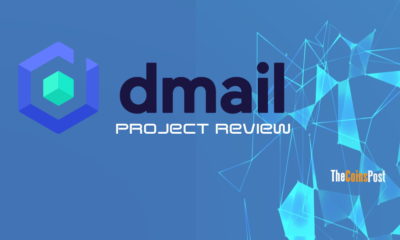
 Blockchain5 years ago
Blockchain5 years agoProject Review: Dmail Decentralized Blockchain Email


